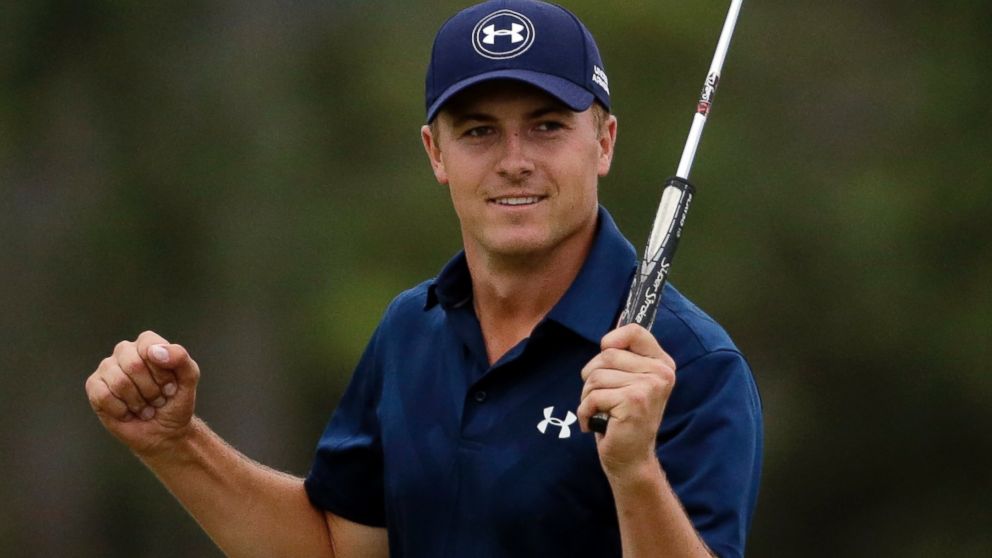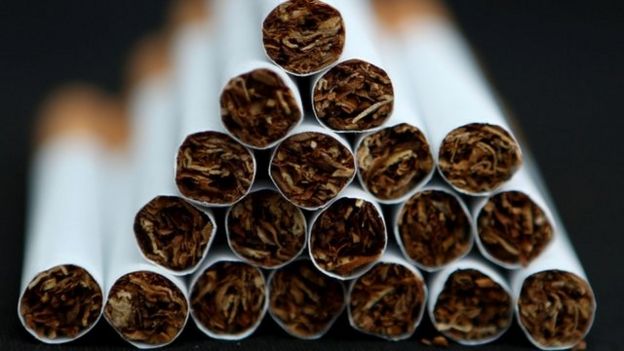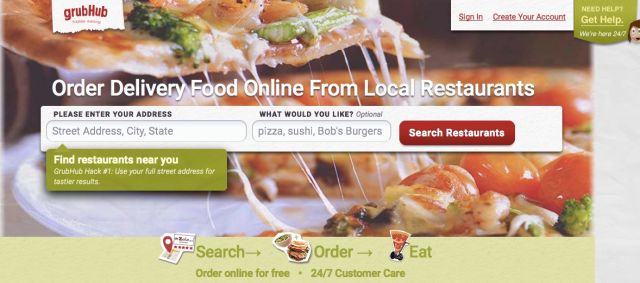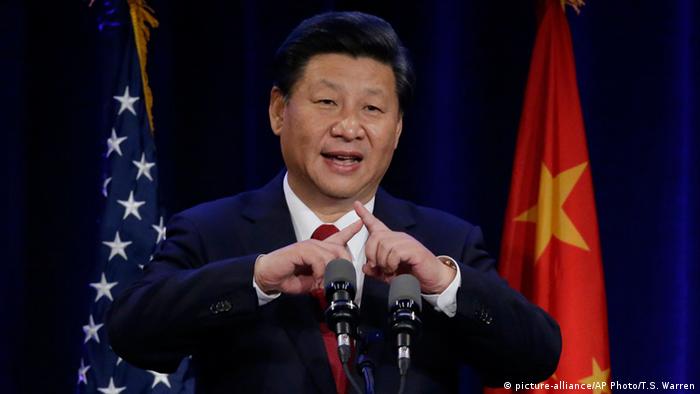ATLANTA, Ga.—You say you want a revolution?
Golf has been there, done that.
Just as Tiger Woods changed the game with his power and fitness more than a decade ago, Jordan Spieth changed golf this year with less glamorous but no less effective concepts--putting, wedge play and preparation.
The secret of golf is not making bogeys. Woods exemplified that during his peak when his short game and putting was near best-ever levels but it was his long drives and precise iron play that got most of the attention.
Sure, Spieth won the Tour Championship here at East Lake by four strokes over Stenson, Justin Rose and Danny Lee, but his great contribution this year was in using all facets of his game and in placing the game’s emphasis back where it belongs, on scoring instead of monster drives and bomb-and-gouge golf.
Spieth ranks No. 1 in one-putts per round and No. 2 in percentage of putts made from 15-25 feet and it was no coincidence that he racked up his fifth victory of the season.
The look on challenger Henrik Stenson’s face was priceless at the par-3 11th green. Spieth’s tee shot came up short, caught a mound mid-green, and rolled back down the slope. Stenson had hit it to three feet. Spieth poured in the up-and-over-and-barreling-right putt from 45 feet like it was a simple.
“That was a dagger,” Spieth admitted.
Stenson keeps a good poker face normally but his that-figures smirk was unmistakable and, gamesman that he is, he gave Spieth a modest fist-bump and a nod, then rolled in his own short birdie putt.
“It’s been a phenomenal year for Jordan,” Stenson said later. “I watched it first-hand in the first two rounds in Augusta and he played phenomenal and putted phenomenal and it was the same putting display today. It was just an exhibition on the greens.”
Struggling to bring home a three-shot lead on the closing stretch, Spieth rolled in par-saving eight-footers at 14 and 15, showing his emotion with a clenched-hand fist pump at the 15th. There was also an 18-footer for birdie at the ninth, which brought a roar from a big gallery jammed around the green.
“His putting and his mental focus is the best in the world,” Stenson said. “He’s a very tidy player and every time he’s in trouble, he saves himself. When he gets the chance, he rolls it in for birdie so he’s hard to beat.”
His chipping and pitching are as good as anyone on tour. The same may be true of his work ethic. Think about the little things. Even though Jason Day outran him at the PGA Championship—and had to shoot the lowest score in major championship history to do it—Spieth holed out an important bunker shot at Whistling Straits’ 18th hole in the second round because he’d talked to local caddies who’d told him about that bunker (and another one) were firmer and played differently than all the rest.
For the British Open, Spieth played simulator golf so he could learn some of the nuances of the Old Course at St. Andrews since he didn’t go over early because he wanted to defend his title at the John Deere Classic.
At Chambers Bay, of course, his caddie Michael Greller used to work there so Spieth already had an edge over the rest of the field.
His edge at the Tour Championship, an event that Woods and Phil Mickelson were known to skip, was that he valued it and prepared accordingly. It’s safe to say that few players have treated this event as a must-win in the past when most saw it as a cash reward for a good season. Spieth recognized the Tour Championship for what it is—the most important part of the FedEx Cup series, if not the only important part. The FedEx Cup champion and the man who gets the $10 million bonus is usually the Tour Championship winner. So those three FedEx Cup events leading up to it, they’re sort of just the warmup act.
“We approached Atlanta like a major championship,” Spieth said earlier. “The whole year has been about majors and I consider this to be a fifth one at the end. I said in New York (before The Barclays), Everything now is to prepare to peak in Atlanta.”
Spieth wasn’t implying that the Tour Championship really is the fifth major, a silly thought for a 30-man field, just that he decided to treat it like one in his mind and perform his usual due diligence.
Peak for Atlanta? Those are words that have seldom, if ever, been heard in regard to the Tour Championship over the years.
Spieth and Greller—they’re the “we” Spieth usually refers to—will be beaten on occasion but not because they’ve been outworked.
I think we were the first ones out here on that Monday morning,” Spieth said. “At Chambers Bay, I went in Saturday and had been there the Saturday before. When you change grass types, it’s a bit of an adjustment. I love this bermuda here but we don’t normally see it on the tour this time of year. We mainly did short game work and then getting my body right. My trainer was here. “I can’t speak about us compared to other players but I will say that I noticed it very, very lonely out here on that Monday, which was kind of nice.”
Who preps for regular tour events? Nobody. There isn’t time. The Tour Championship, however, isn’t a regular tour event. There are only 29 other players to beat—27 this week after two withdrawals—and the big prize is $11.8 million in prize money, including the $10 million FedEx Cup bonus money. That, plus capping off a great season with a feel-good win, is what made it worth the extra effort that Spieth and Greller spent.
Whether Day and Rory McIlroy and the rest of golf realizes it yet, Spieth and Greller have raised the bar on being ready and being motivated, just the way Tiger’s strength sent almost every PGA Tour player scurrying to the fitness van for weight work to get stronger.
You don’t believe this is a revolution? Spieth’s accomplishments say otherwise.
He’s the first player to win more than $12 million in one season. Tack on the $10 million FedEx Cup bonus and he’s over $22 million.
At 22, he’s the youngest player to win five times in a season since Horton Smith in 1929.
This win reclaims the No. 1 world ranking, clinches the Vardon Trophy for best scoring average and obviously the money title. Player of the Year? That was never truly in doubt. Even before this week, would Jason Day have traded his PGA Championship and four other wins for Spieth’s two majors and two other victories. Damn right he would. Would Spieth have traded with Day? Not a chance.
NBC golf analyst Johnny Miller expressed the appropriate amount of awe at the end of Sunday’s telecast. “You’ve got to keep reminding yourself that this guy is 22 years old,” Miller said of Spieth. “That’s what is amazing. This is a great year for a guy in his prime at 26 or 28 or 30. At 22, where does his progression end? Are we seeing the best he’s going to play and putt or is he going to get better?”
Knowing how hard Spieth and Greller work, you’ve got to believe he—sorry, they!--will get better.
This revolution has only just begun.
- golf.com -









































